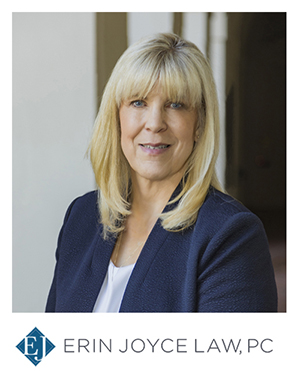Legal Ethics and Risk Management in the Time of Pandemic
Lundberg Article
In a span of less than two weeks, the coronavirus outbreak has caused unprecedented disruption in law firms and created a host of new issues for firm general counsel and ethics partners. Here is a sampling of new ethics and risk management issues that have arisen almost overnight:
A new paradigm for civility and reasonableness?
Last week, a statement by the Los Angeles County Bar Association’s Professional Responsibility and Ethics Committee called for a new emphasis on lawyer civility:
“In light of the unprecedented risks associated with the novel Coronavirus, we urge all lawyers to liberally exercise every professional courtesy and/or discretional authority vested in them to avoid placing parties, counsel, witnesses, judges or court personnel under undue or avoidable stresses, or health risk. . . Given the current circumstances, attorneys should be prepared to agree to reasonable extensions and continuances as may be necessary or advisable to avoid in-person meetings, hearings or deposition obligations.”
A decision out of the federal district court in Chicago last week (known among ethics nerds at “the Unicorn case”) vividly illustrated the new paradigm. A company that creates “life-like portrayals of fantasy subjects” such as elves and unicorns sought an emergency hearing in its trademark infringement suit. The court deferred the hearing for a couple weeks citing health and safety issues arising from the coronavirus.
Plaintiff’s counsel promptly moved for reconsideration on an emergency basis. The court was not amused: “Plaintiff has not demonstrated that it will suffer an irreparable injury from waiting a few weeks. At worst, Defendants might sell a few more counterfeit products in the meantime. But Plaintiff makes no showing about the anticipated loss of sales. One wonders if the fake fantasy products are experiencing brisk sales at the moment. . . . If there’s ever a time when emergency motions should be limited to genuine emergencies, now’s the time.”
The opinion concluded with this gem: “The filing calls to mind the sage words of Elihu Root:
“About half of the practice of a decent lawyer is telling would-be clients that they are damned
fools and should stop. . . . The world is facing a real emergency. Plaintiff is not.”
Now the point is this: A month ago there would have been nothing particularly remarkable about counsel pressing for an expedited hearing as he did. But everything has changed now. The pandemic has suddenly narrowed the Overton Window of reasonableness in litigation.
As one recent article put it, “Attorneys have begun softening their adversarial ways and some judges have called for more civility in a world where the wheels of justice are being forced to slow as one in five Americans is confined to their homes.”
In short, this is a time for somewhat less aggressive posturing. All firms should educate their litigators about this new paradigm. And quickly.
New cybersecurity concerns for remote work
Working from home has become the new normal. The pandemic has forced law firms into a new work paradigm, switching overnight to a remote workforce. A recent ABA panel of experts noted that law firms need to be mindful of how employees working remotely because of the pandemic can avoid computer viruses and other cybersecurity risks.
Even if cybersecurity was not a primary risk issue for law firms before (it was, by the way), it is now.
Hackers are no doubt aware that they can exploit weakened technology systems because most lawyers and support staff are suddenly working remotely. Law firms must protect their clients’ sensitive personal information now that it is stored in a lawyer’s home rather than at the firm. E-discovery becomes more problematic when you add home computers as new data collection points.
In addition, lawyers working remotely must be careful to consider the security and confidentiality of their procedures and systems. Some basics include protecting computer systems and physical files and ensuring that telephone and other conversations and communications remain privileged. Privilege issues that never would have occurred in the office are now implicated. How does working from home (with kids? A spouse / partner / roommate?) implicate attorney-client privilege and confidentiality? Most recently, commentators are cautioning that the Alexa unit and other smart devices around the home should be unplugged.
Wellness issues
Until about three years ago, “attorney wellness” as a law firm risk management issue wasn’t even a Thing. It is now one of the top 5 concerns of those in the ethics and risk management arena. And without question it has become a much bigger issue in the time of pandemic.
Wholly aside from the physical health issues inherent in a pandemic, mental health and wellness issues loom large.
According to a recent Law360 article:
As lawyers grapple with the anxiety of a public health crisis, juggle work and family obligations at home, and adjust to physical isolation due to the spread of COVID-19, efforts to support attorneys’ mental health and wellness are paramount, according to mental health professionals.
Lawyers struggle with higher rates of mental health issues, including depression and problem drinking, than the average public, studies have shown.
The current environment, in which stress and anxiety are running high and many lawyers are physically isolated while working from home, stands to exacerbate the attorney mental health crisis if preventative measures are not taken, attorney wellness and mental health experts told Law360.
“The pandemic and ensuing disruption to routines and stability is unquestionably taking a toll on the mental health and well-being of many in the legal profession, just as it is for individuals in all walks of life,” said Patrick Krill, founder of attorney well-being consulting firm Krill Strategies. “Fear, uncertainty, stress and worry are widespread.”
The ABA Commission on Lawyer Assistance Programs has published a list of resources titled “Mental Health Resources for the Legal Profession During COVID-19.” And the MSBA has just launched a new webpage devoted to COVID-19 resources for Minnesota legal professionals that includes resources on coping and wellness, https://www.mnbar.org/resources/covid-19-resources
On a related subject, some law firms are thinking about how they can support their lawyers and staff who are parents. Amid a pandemic that has shuttered schools, many attorneys are now working from home while helping educate their children.
As just one example of what some firms are doing, Holland & Hart LLP recently announced it would pay for full-time hours during the crisis, even if employees need to adjust their hours in order to accommodate having children at home, or to care for sick family members. The firm said it wanted its people to be able to work remotely where possible, “but when you’ve got kids at home, you’re not always going to be able to get a full day’s work in . . . You can do work in chunks when you’re available and this policy fills in the gaps so that you are paid for a full work week.”
Aside from compensation issues, with all of your lawyers working remotely, how do you even begin to keep tabs on their physical and mental health?
The deeper issue here is that this is much more than just a law firm risk management issue. It is rather a part of the firm’s culture. Nothing will ensure loyalty to a firm like an open and transparent attitude of caring for the families of its colleagues in time of crisis. “This is the kind of firm we are” should be the watchword.
Competence: Keeping up with changes in the law and standards for practice
In every area of practice there are new and different challenges posed by the new normal:
In litigation, court rules, calendars, and statutes of limitation have been suspended. Commentators suggest that by halting trials, the Coronavirus may push parties to the settlement table. Now could be an opportune time for litigants to reach out to opposing parties to see if resolution is appropriate in light of the circumstances.
In employment law, the pandemic raises numerous new issues revolving around HIPAA, medical issues, and new law governing family / medical leave and emergency sick leave
Estate planning experts have expressed new concerns about children or other beneficiaries contact the parents’ attorney to have elder parents’ estate plan changed. More fundamentally, how are documents to be executed in the era of social distancing?
Immigration law has entirely new problems to confront. M&A practice has been fundamentally changed, as has mediation, which is now conducted via Zoom and other remote technology.
How do firms keep up with the changes that are occurring almost daily as governments respond to the pandemic? Every day, general counsel responsible for workers across jurisdictions are trying to get up to speed on new mandates, while seeking advice from outside counsel and other external resources. And the ethical duty of supervisory lawyers to ensure competent practice by subordinate lawyers is not subject to a pandemic exception. Finally, on a more mundane note, what about the financial stability of firm clients? Will bankruptcies spike later this year?
Across all practice areas, competence in using any new technology (e.g. Zoom for meetings with a client, etc.) must be confirmed. (Speaking of Zoom, have you checked the privacy policy for that app to see what information is being collected about you?)
Even more basic, how will clients react to remote communications? For some it’s just not the same as in-person contacts. Communication with clients in the time of pandemic should be handled delicately. One commentator has noted that when you call your clients now, perhaps the first few minutes of any conversation should have nothing to do with the legal matter at hand. “It’s time to discuss life, family, fears, and of course, health. This is also a time to be honest and transparent. We’re all going through this, no one is immune.”
Chuck Lundberg is recognized nationally as a leader in the areas of legal ethics and malpractice. A former chair of the Minnesota Lawyers Board, he retired in 2015 after 35 years of practice with Bassford Remele. He now teaches at the University of Minnesota Law School and consults with and advises attorneys and law firms on the law of lawyering through Lundberg Legal Ethics (www.lundberglegalethics.com).
[i] Art Ask Agency v. The Individuals, Corporations, Limited Liability Companies, Partnerships, and Unincorporated Associations Identified on Schedule A Hereto, N.D. Ill., No. 1:20-cv-01666, 3/18/20, discussed at https://news.bloomberglaw.com/us-law-week/federal-judge-reams-out-plaintiff-in-counterfeit-unicorn-art-case
[ii] “Virus Poses Latest Test To Supporting Attorneys’ Mental Health,” Law360, Mar.23, 2020 (paywall).

Erin is a former 18 year State Bar prosecutor now focusing on ethics consultations for small and mid-sized firms and State Bar defense.
Erin Joyce Esq.
117 East Colorado Blvd., Suite 465 Pasadena, California 91105
Call: 626.314.9050
Email: erin@erinjoycelaw.com
LAW IN THE NEWS

Sip into Summer – LACBA Multi-Section Mixer


Top Professional Responsibility Lawyers 2025
CONTACT ERIN JOYCE LAW
REPRESENTING CLIENTS THROUGHOUT ALL OF CALIFORNIA
When you get a letter from the State Bar, don’t go it alone! You need competent, experienced counsel to respond to the State Bar at every stage. Your license is at risk, so ensure you have the best representation from a former State Bar prosecutor before sending any response to an investigator or responding to formal charges leveled by the State Bar. You cannot make an informed decision without good advice. Call Erin now.











